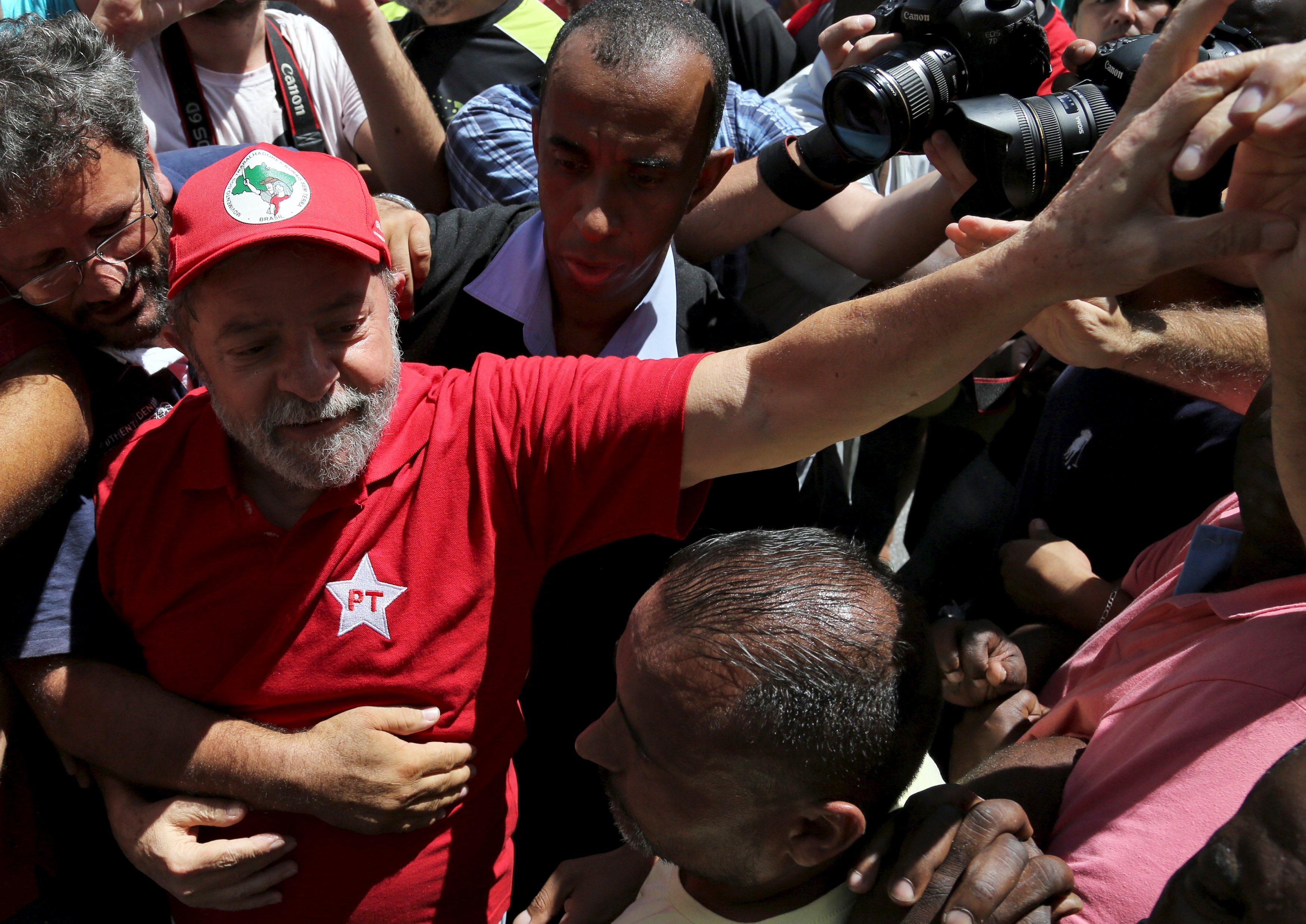
For two years now, as Brazilians have watched a widening corruption scandal drag the economy and some of the country's most storied names in politics and business into disrepute, I've kept a running conversation with my disgruntled neighborhood grocer. "Do you really think they'll get to Lula?" Avelino scoffed the other day at his small market in Rio de Janeiro, referring to the ultrapopular former president Luiz Inacio Lula da Silva, whom he blames for the country's sinking fortunes. "Ha, that'll be the day."
I can't wait to hear Avelino now. On Friday morning, federal police launched phase 24 of Operation Car Wash, the massive probe into kickbacks and influence peddling at the state oil company Petrobras. Just after dawn, police swooped down on 33 addresses in São Paulo, Rio de Janeiro and Bahia with search warrants. They rounded up 11 people for questioning, including Lula, his wife and three sons.
No charges were filed, and Lula was not arrested or handcuffed, but it was hard to miss the symbolism of seeing the once-beloved leader -- who was revered for lifting millions from poverty and telling truth to power -- shuttled into a police car and sped away for interrogation.
Yes, police and prosecutors succeeded in exposing the looting of Petrobras by targeting big-shot moguls, lobbyists and former political bosses suspected of bribery or selling favors. But as the Car Wash probe has crept along, critics like my friend Avelino have wondered just how high the law would reach, and who among the country's sitting officials would be spared.
True, Lula's successor, President Dilma Rousseff, has been battling an impeachment drive, but that is for alleged fiscal misdeeds and not corruption. And then there are the nearly three dozen sitting lawmakers whom attorney general Rodrigo Janot named nearly a year ago as suspects in the Petrobras case. He cannot bring them to trial without the Supreme Court's imprimatur.
Now, that bubble of invincibility may be beginning to deflate. Lula is under investigation for a laundry list of alleged misdeeds, including letting government suppliers pay for home improvements and taking donations and speaker's fees from companies charged with bribing officials for contracts at Petrobras. That's still a long way from the defendant's chair, never mind jail, but the fact that he too is the target of such scrutiny suggests that even legends must answer to the law.
And Lula isn't the only seemingly untouchable politician to stumble. The arrest of Rousseff's campaign manager, Joao Santana, has raised questions of whether she financed her 2014 reelection with Petrobras bribes. And on Thursday, the Supreme Court voted to send House Speaker Eduardo Cunha to trial for allegedly pocketing a bribe from a Petrobras supplier. That ruling makes Cunha the first House Speaker ever to be ordered to face trial in Brazil's high court.
And thanks to a small revolution in Brazil's legal system, the dragnet may spread even higher. Until recently, no one could be sent to prison in Brazil until all possible appeals had been exhausted -- an indulgence born of the laudable principle that the innocent must be afforded full protection. In reality, the rule practically ensured impunity by allowing powerful defendants with clever lawyers to barrage the courts with writs and infinite appeals. Last month, the Supreme Court closed that escape hole, deciding that anyone convicted of a crime in a lower court, and whose conviction was upheld on appeal, must go straight to jail.
What helped clinch the case against Cunha and put Lula on the investigators' radar was the testimony of criminal suspects who agreed to name names in exchange for milder punishment.
Brazil is better for this ruling, but you wouldn't know it from the mood on the street, where public opinion is already sharply polarised and anti-government protesters are planning to press for impeachment on March 13.
That's unlikely to deter the Car Wash probe. The federal police, who have a soft spot for the classics, tellingly dubbed the latest operation "Aletheia," or "search for truth" in Greek. I think Avelino would approve. - Bloomberg View